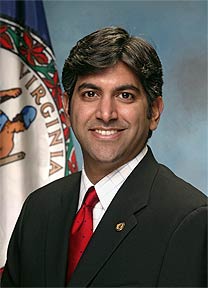U.S. CTO: Infrastructure growth needs private sector investment


CTO Aneesh Chopra delivered a keynote address this morning at the Consumer Electronics Association's Digital Downtown event in New York City. The U.S., he said, is "dead last" on the global stage when it comes to the tech infrastructure and yet bandwidth usage in the U.S. is expected to increase five-fold by 2013.
"We've stood still while the rest of the world has caught up or exceeded us," he said.
The U.S. is going to have to bring "all stakeholders to the table" for this discussion, he said. "We want equity, growth, application value...we have multiple public priorities, and the bulk of capital [investment]...will be a private sector endeavor."
In his keynote, Chopra outlined the four areas, or "pillars," of growth in need of attention: harnessing the potential for economic growth; innovation and policy reform in areas such as energy and education; increasing secure connectivity across the nation; and using "retail 2.0" strategies in government efforts, such as in employment and social services.
"Step by step, piece by piece, we're going to make progress," Chopra said.
As a way of holding himself publicly accountable, Chopra said he plans to keep a "report card" that peers at the White House, such as National Economic Council director Lawrence Summers, will sign off on. Results, he said, will be posted regularly on a blog.
"It's my responsibility to ensure...we deliver," Chopra said.
Chopra used Google and its "20 percent time" initiative - which allows employees to devote 20 percent of their time to a project that interests them. "How do we think about that 20 percent time in the spirit of the commonwealth?" Chopra asked
Businesses should be spending time and energy - or encouraging it - on projects that not only help the company's monetization efforts but also double as a public service. For example, mobile app developers could design educational tools that help student learn tackle difficult subjects, such as algebra.
"We all have a little bit to contribute," he said. "If framed the right way, there are opportunities for benefit by all parties."
To pull this off, the government needs to use "market leverage," not law, to entice people and companies to contribute resources to a common good. Companies and government will need to work on linking university research and development with creative minds and business-savvy entrepreneurs. And, of course, there will be the challenges of framing public policy in Washington. It won't be easy and it won't change overnight, he said.
"The single biggest [piece of] leverage going forward will be the intersection of design and innovation," he said. "There's an opportunity for technology and innovation to play a role."